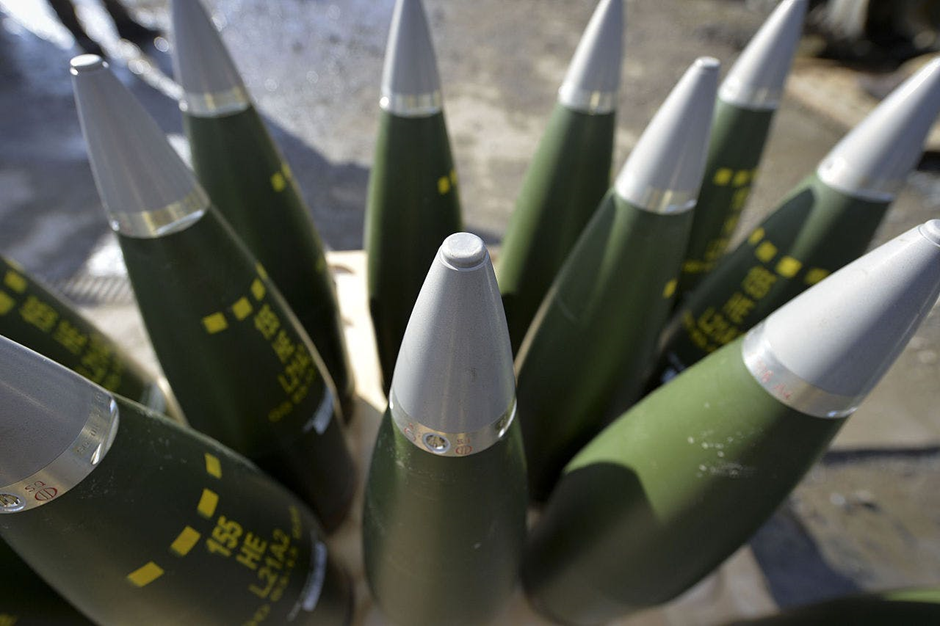MoD Boosts Armed Forces Munitions Production
In a bid to bolster the nation’s defence capabilities, Leo Docherty, Minister of State for the Armed Forces, has unveiled a comprehensive strategy aimed at reinforcing armed forces munitions production.
Addressing the press, Docherty emphasized the unwavering readiness of the UK’s Armed Forces to safeguard the nation’s interests, highlighting their active participation in all operational commitments, including vital NATO missions.
Docherty further elaborated on the intricacies of the Defence Command Paper 23, outlining a meticulous plan to cultivate a robust warfighting force. This blueprint, he asserted, signifies the most substantial transformation and reinforcement of national defence since the Cold War, emphasizing its pivotal role in protecting the nation and fostering prosperity in the years ahead.
Central to this ambitious initiative is a significant increase in defence spending, with the Ministry of Defence committing to ramping up expenditure to £87 billion annually by the decade’s conclusion. Of this substantial budget allocation, £10 billion will be specifically earmarked for munitions production.
“To ensure the realization of our strategic goals, defence spending will see a considerable rise to £87 billion per annum by the decade’s end,” Docherty affirmed. “As an integral component of this investment, £10 billion will be channelled into munitions production, bolstering our rapid production capacity and stockpiles of next-generation munitions.”
This strategic investment underscores the government’s unwavering commitment to fortifying the nation’s defence infrastructure, ensuring that the UK’s Armed Forces remain equipped to confront evolving threats and challenges on the global stage.

LINAPS Boosts Artillery Precision in UK and Italy
Leonardo, a global leader in defence technology, has clinched significant contracts from the UK and Italian Ministries of Defence, affirming the continued adoption of its LINAPS artillery pointing system.
The Italian Army is poised to receive 39 LINAPS systems, meticulously tailored to enhance the precision fire capabilities of their FH70 towed howitzers. This strategic investment underscores Italy’s commitment to bolstering its artillery capabilities with cutting-edge technology.
Simultaneously, the UK Ministry of Defence’s Defence Equipment and Support (DE&S) organization has inked a support contract, ensuring the sustained operational readiness of LINAPS systems currently deployed on the UK’s L118 light gun. This contract secures optimal performance until the planned out-of-service date in 2030, affirming the system’s integral role in the UK’s artillery landscape.
LINAPS, hailed for its efficacy, is not confined to the UK and Italy alone. It boasts a global footprint, serving the Armed Forces of nations including Poland, Canada, New Zealand, UAE, Oman, Saudi Arabia, South Africa, Malaysia, Thailand, and India. Its battlefield prowess has been tested and proven in real-world operations, including engagements in Iraqi Freedom and Afghanistan.
At the heart of LINAPS’ success lies the FIN3110/FIN3210 module, tailored to specific variants. This crucial component delivers precise orientation and positioning data, empowering artillery units with unparalleled accuracy in gun laying and navigation. Such precision translates directly into pinpoint firing accuracy, a decisive advantage in modern warfare scenarios.

MOD Reveals AH-64E Apache Programme Costs
The Ministry of Defence has unveiled the financial details surrounding the AH-64E Apache programme in response to inquiries.
James Cartlidge, the Minister of State for the Ministry of Defence, provided a comprehensive breakdown. He revealed that the initial procurement of the UK Apache 64E was facilitated through US Government Foreign Military Sales and is projected to total £1.793 billion, against an approved budget of £1.999 billion.
Furthermore, Cartlidge elucidated that the long-term training and support for the Apache 64E are administered by Boeing Defence UK. The current five-year Long-Term Training and Support Contract carries a value of £341,199,072.50.
It’s worth noting that this figure excludes the operating costs of the Apache 64E, which are managed separately.
The disclosure sheds light on the financial aspects of the AH-64E Apache programme, providing transparency regarding its procurement and support expenses.

UK Takes Lead Role in ESAs Vigil Mission
UK Space Minister Andrew Griffith witnessed a pivotal moment in space exploration as he attended the signing of a significant industrial contract in Brussels. The contract seals Airbus Defence and Space in Stevenage as the builder of Europe’s flagship space weather mission, Vigil.
Selected by the European Space Agency (ESA), Airbus will spearhead the design and construction of Vigil, marking the first operational mission within ESA’s Space Situational Awareness (SSA) Space Safety Programme (S2P). Vigil’s mission is paramount: to provide crucial advance warning to Earth about impending solar storms and coronal mass ejections, which have the potential to disrupt satellites in orbit and Earth’s electronic and power distribution systems.
Vigil, slated to be constructed in the UK, will feature cutting-edge technology from various global partners. This includes a compact coronagraph from the US Naval Research Laboratory, a heliographic imager from Italy’s Leonardo Spa, and a photo-magnetospheric field Imager from Germany’s Max Planck Institute. Additionally, Vigil will integrate a plasma analyser from London’s Mullard Space Science Laboratory and a magnetometer from Imperial College London. NASA will contribute Vigil’s sixth instrument, an extreme ultraviolet imager.
The spacecraft’s platform is meticulously designed to facilitate high-quality scientific measurements, boasting stringent magnetic cleanliness and contamination control measures. As an operational mission, Vigil’s satellite design prioritizes resilience to ensure uninterrupted operation of its instruments and high reliability in data transmission, particularly during major solar events.
The UK’s pivotal role in the Vigil mission underscores its growing prominence in space exploration and its commitment to advancing scientific understanding and technological innovation on a global scale.
That’s it for this week folks, hope you have a great week.

